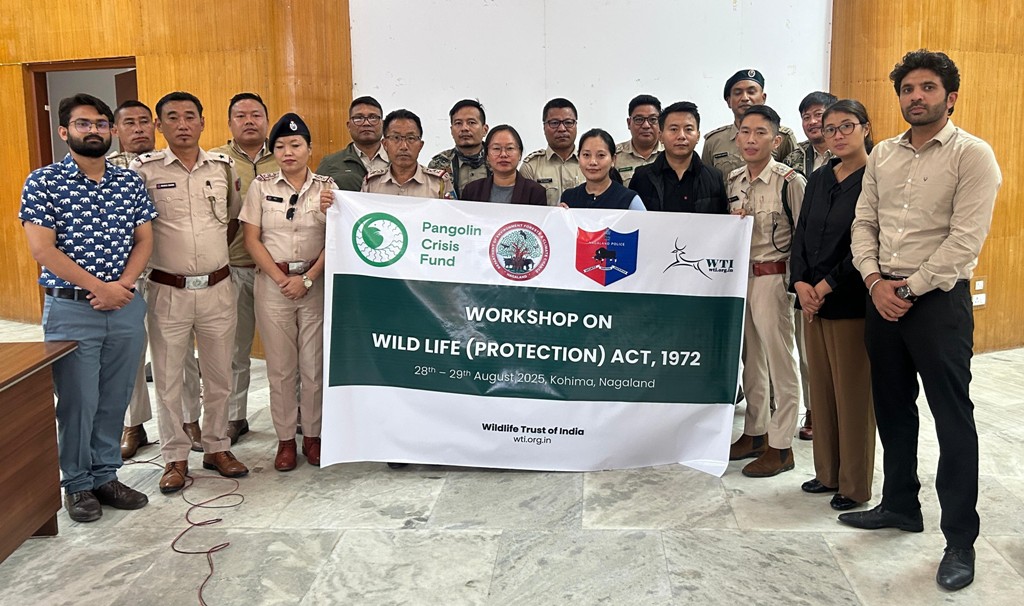FRIDAY, AUGUST 29, 2025
- Home
- Wildlife Trust of India endeavours to strengthen wildlife crime enforcement
Wildlife Trust of India endeavours to strengthen wildlife crime enforcement
Wildlife Trust of India conducts workshop on Wildlife (Protection) Act, 1972 for forest and police personnel.
Published on Aug 29, 2025
By EMN
Share

DIMAPUR — The Wildlife Trust of India (WTI), in collaboration with the Kohima Forest Division and Kohima Police Department and with support from the Pangolin Crisis Fund (PCF), conducted a two-day capacity-building workshop on the Wild Life (Protection) Act, 1972 for forest and police personnel in Kohima on August 28 and 29.
An update from the WTI stated that a total of 23 officers including assistant sub-inspectors, sub-inspectors, foresters and forest range officers took part in the training that aimed to strengthen inter-departmental coordination and enhance the capacity of frontline officers to effectively tackle illegal wildlife trade in Nagaland.
The sessions covered an overview of wildlife crime in India and its far-reaching impacts, a detailed introduction to the Wild Life (Protection) Act, 1972 along with the latest amendments, techniques for identification of wildlife articles and contraband and best practices for investigation and prosecution of wildlife offences under the Act.
Also read: Nagaland Pollution Control Board hosts talk show on clean air
It stated that a special emphasis was placed on pangolin conservation, considering the species is among the most trafficked mammals in the world and required urgent protection measures in Nagaland.
The workshop was inaugurated by Sevono Seletsu, divisional forest officer (DFO) of Kohima Forest Division, who stressed the importance of collaborative efforts between forest and police departments in combating wildlife crime.
The participants were trained by Lovish Sharma, advocate at Delhi High Court, and Monesh Singh Tomar, assistant manager at WTI, while Chingrisoror Rumthao, WTI field officer, assisted in the smooth execution of the programme.
It stated that the participants have expressed appreciation for the initiative and described it as timely, practical and relevant to the enforcement challenges they face in the field. They noted that the sessions provided valuable insights and skills to strengthen wildlife law enforcement in the state.
Speaking at the concluding programme, Tomar remarked that Nagaland plays a critical role in the fight against illegal wildlife trade, particularly for pangolins and other threatened species. He added that that building the capacity of enforcement officials is vital to ensure effective implementation of the law and successful prosecution of wildlife crimes.
It further stated that the workshop represented a significant step towards strengthening enforcement mechanisms and promoting coordinated action against wildlife trafficking in Nagaland.

